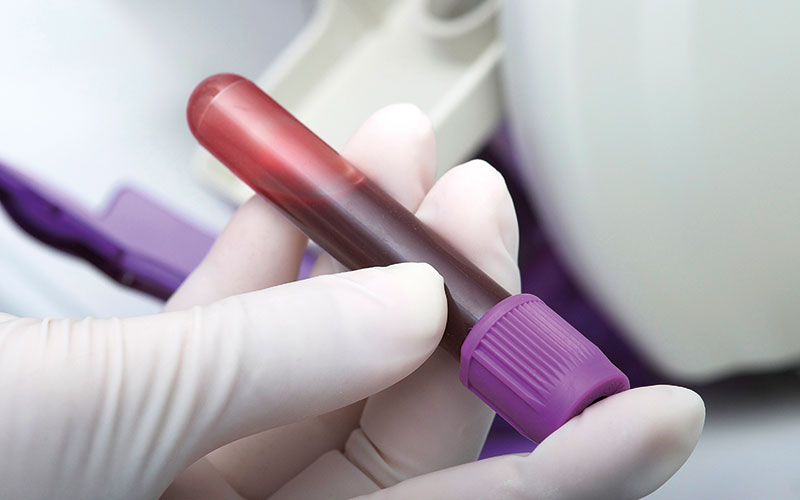A point-of-care blood test is being developed to swiftly reveal if a patient with memory issues has Alzheimer’s disease or mild cognitive impairment.

The test can also distinguish both conditions from frontotemporal dementia.
If approved, it could lead to a jump in the number of Alzheimer’s patients enrolling in clinical trials and be used to monitor response to those investigational treatments.
In a new study, scientists measured blood levels of phosphorylated tau 181 (pTau181) – a brain protein that aggregates in tangles in patients with Alzheimer’s.
It was 3.5 times higher in people with the disease compared with healthy peers.
In contrast, in patients with frontotemporal dementia, a condition often misdiagnosed as Alzheimer’s, pTau181 was found to be within the same range as the control group.
Senior author Adam Boxer said: “This test could eventually be deployed in a primary care setting for people with memory concerns to identify who should be referred to specialised centres to participate in clinical trials or to be treated with new Alzheimer’s therapies, once they are approved.”
Diagnosing Alzheimer’s disease at early stages “may be especially beneficial to patients with mild cognitive impairment”.
Image credit | iStock




